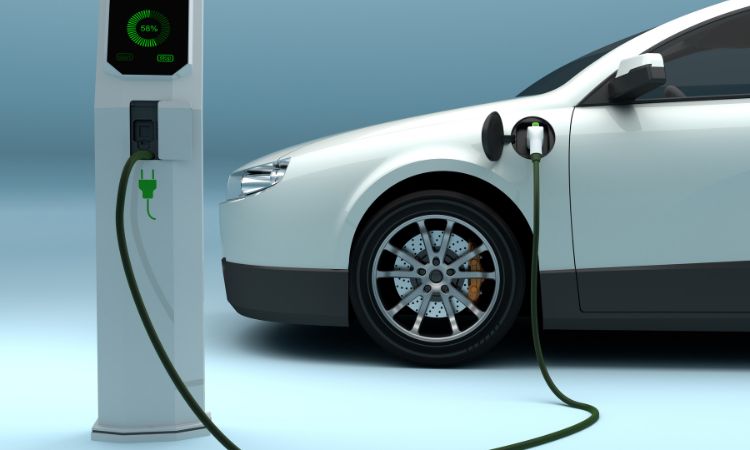In today's digital age, having a strong online presence is crucial for businesses to succeed.…

The Growth of Electric Vehicles in India: A Comprehensive Overview
The India electric passenger cars market size tood at a value of around USD 135 million in 2023. The market is further expected to grow in the forecast period of 2024-2032 at a CAGR of 60.6% to reach USD 2,668 million by 2032. This remarkable statistic is just one of many indicators showcasing the rapid expansion of electric vehicles (EVs) in the Indian automotive landscape. In this comprehensive blog post, we will delve into the electrifying growth story of EVs in India.
The Current State of Electric Vehicles in India
As we embark on our journey through the Indian electric passenger car market, it’s crucial to understand the current state of EV adoption in the country.
Statistics reveal that India has been witnessing a steady rise in the number of electric vehicles on its roads. As of 2023, the Indian EV market boasts a growing fleet of electric cars, two-wheelers, and even electric rickshaws. While EVs still make up a relatively small percentage of the total vehicle population, their presence is undeniably increasing.
Leading this charge are various factors, including environmental concerns, government incentives, and technological advancements. Major cities like Delhi, Mumbai, Bengaluru, and Hyderabad are becoming EV hubs, with an increasing number of consumers opting for electric cars as their primary mode of transportation.
Government Initiatives and Policies
One of the key catalysts propelling the growth of electric vehicles in India is the unwavering support of the government. Various initiatives and policies have been put in place to encourage EV adoption.
At the forefront is the Faster Adoption and Manufacturing of Hybrid and Electric Vehicles (FAME) scheme. Launched by the Indian government, FAME aims to incentivize the production and purchase of electric and hybrid vehicles. It provides subsidies and benefits to manufacturers and consumers, making EVs more accessible and affordable.
Furthermore, several states have introduced their own EV policies, offering additional incentives and benefits to promote electric mobility. These policies vary from state to state but typically include exemptions from road taxes, reduced registration fees, and charging infrastructure development.
Electric Vehicle Models Available in India
To gain a better understanding of the Indian electric passenger car market, let’s take a closer look at the range of electric vehicle models available to consumers.
- Tata Nexon EV: Tata Motors, one of India’s leading automakers, offers the Nexon EV, an electric compact SUV. With a range of over 300 kilometers on a single charge, it has garnered significant attention from environmentally conscious buyers.
- MG ZS EV: The MG ZS EV, introduced by MG Motor India, is another popular electric SUV. It features advanced technology, a spacious interior, and a competitive price point.
- Mahindra eKUV100: Mahindra & Mahindra has ventured into the electric vehicle market with the eKUV100, an electric version of their popular KUV100 compact SUV. It’s designed to be an affordable and practical EV option.
- Hyundai Kona Electric: Hyundai’s Kona Electric is a premium electric SUV known for its long-range capabilities and modern features. It has been well-received by Indian consumers looking for a more luxurious electric driving experience.
These are just a few examples of the electric car models available in India. The market offers a diverse range of options to cater to different consumer preferences and budgets.
Charging Infrastructure Development
One of the critical factors in promoting electric vehicle adoption is the development of a robust charging infrastructure. To ease the concerns of range anxiety, India has been actively expanding its charging network.
In recent years, various public and private entities have invested in charging stations across the country. Charging infrastructure is concentrated not only in major cities but also along highways and in urban centers. This expansion is essential to ensure that electric vehicle owners have convenient access to charging facilities, whether for daily commuting or long-distance travel.
Furthermore, innovative solutions such as fast-charging stations and home chargers have become more accessible, making EV ownership even more convenient. Charging infrastructure growth is a positive sign for the future of electric mobility in India.
Environmental Impact and Sustainability
Beyond the practical benefits of electric vehicles, their positive impact on the environment cannot be overstated.
Electric cars produce zero tailpipe emissions, reducing air pollution and greenhouse gas emissions. In a country like India, where urban air quality is a growing concern, the adoption of electric vehicles can significantly contribute to cleaner air and a healthier environment.
Moreover, electric vehicles play a crucial role in India’s commitment to sustainability and reducing its carbon footprint. As the country works towards its climate goals, transitioning to electric mobility is a pivotal step.
Challenges and Roadblocks
While the growth of electric vehicles in India is promising, it is not without its challenges and roadblocks.
- Range Anxiety: One of the primary concerns for potential EV buyers is range anxiety – the fear of running out of battery power before reaching a charging station. Addressing this concern through increased charging infrastructure and improved battery technology is crucial.
- High Initial Costs: Electric cars often come with a higher upfront cost compared to traditional gasoline vehicles. Although government incentives help mitigate this issue, making EVs more affordable remains a challenge.
- Technological Challenges: Developing and maintaining electric vehicle technology, including batteries and charging systems, requires ongoing research and innovation. Ensuring that these technologies are reliable and cost-effective is essential for long-term success.
Read More Articles
sports goods manufacturers in india
Future Growth Prospects
The electric vehicle market in India is poised for remarkable growth in the coming years. Several factors contribute to this positive outlook:
- Continued Government Support: The government’s commitment to promoting electric mobility is expected to persist. This support includes financial incentives, policy measures, and investments in charging infrastructure.
- Advancements in Battery Technology: As battery technology continues to improve, electric cars will offer longer ranges and faster charging times. This will address one of the primary concerns of potential EV buyers – range anxiety.
- Increasing Awareness: With rising environmental awareness and concerns about air pollution, more consumers are likely to consider electric vehicles as a cleaner and sustainable transportation option.
- New Market Entrants: The Indian electric vehicle market is attracting both domestic and international automakers. This competition is expected to lead to a wider range of EV models and price options for consumers.
Conclusion
The India electric passenger cars market is on a remarkable trajectory, with a projected growth rate of 60.6% to reach USD 2,668 million by 2032. This growth is driven by a combination of factors, including government initiatives, a diverse range of electric vehicle models, expanding charging infrastructure, environmental consciousness, and technological advancements.
As India continues its journey toward a greener and more sustainable future, electric vehicles are set to play a pivotal role in transforming the country’s transportation landscape. The road ahead may present challenges, but with ongoing support and innovation, electric mobility in India is poised to thrive. Whether you’re a consumer looking to make the switch or an industry enthusiast, it’s an exciting time to be part of the electric vehicle revolution in India.




This Post Has 0 Comments